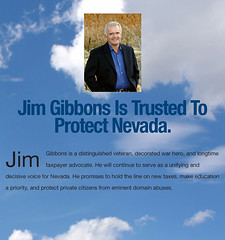The Reddit outage seems to be posing an interesting problem for future online media. What happens when the lights go out?
Like any company, online or off, contingency and/or crisis communication plans have to be in place if you want to preserve your market share in the morning. Since Reddit, which allows users to post links to content on the Web and other users to vote those links up or down, didn't have any semblance of a plan B in place (and cut off its own communication to spite those pesky spambots driving up irrelevant stories), its rival, Digg, is being given another chance to fend off a rival and capture Reddit's social content posters.
While it's unclear if Digg will be able to capitalize on this on not, it does remind content providers that Web companies are not exempt from the principles of strategic communication. This is especially true if your tech savvy homepage subscribers retain that ever present and unpleasant feeling that your platform is unreliable.
Sure, problems abound on the Internet. Sites sometimes go down and service providers go dark. It's par for the course. And once again, we see the measure of reliability generally resting with the ability to communicate a message. For example, our service provider has dropped our site and e-mail ability once or twice during hurricanes and upgrades, but is reasonably reliant on informing clients on the status of the situation. Blogger can sometimes be a bit buggy too, but it seems adept at confining problems to functions without major content crashes. Its customer service reporting is surprisingly fair for a free service.
Reddit, on the other hand, has made the mistake of going dark, effectively cutting off its own ability to communicate at the same time. Too bad. It seems like just yesterday it was all the buzz because PC World magazine gave it the nod over Digg, citing Reddit's user comments and the site's ability to make recommendations to other users based on past story selections. It's hard to tell whether PC World will be reversing that decision, given that Reddit was, at least temporarily, dead.
California-based Digg ranks No. 78 on the Web according to Alexia. Reddit has made a strong showing, climbing to 804. Unfortunately for fans, it demonstrated why sometimes relying on a site that was operated by three full-time workers and a part-time graduate student in a three-bedroom apartment in Davis Square just six months ago, might not be the best bet.
Or maybe it will be, assuming Reddit's team learns the hard way that a crisis communication plan (and a medium to communicate) isn't really optional. And, once you're back up (it has been up and down all day), it's always good to explain what happened, up front rather than buried away somewhere, who knows where, on its site. We wish them luck.
Like any company, online or off, contingency and/or crisis communication plans have to be in place if you want to preserve your market share in the morning. Since Reddit, which allows users to post links to content on the Web and other users to vote those links up or down, didn't have any semblance of a plan B in place (and cut off its own communication to spite those pesky spambots driving up irrelevant stories), its rival, Digg, is being given another chance to fend off a rival and capture Reddit's social content posters.
While it's unclear if Digg will be able to capitalize on this on not, it does remind content providers that Web companies are not exempt from the principles of strategic communication. This is especially true if your tech savvy homepage subscribers retain that ever present and unpleasant feeling that your platform is unreliable.
Sure, problems abound on the Internet. Sites sometimes go down and service providers go dark. It's par for the course. And once again, we see the measure of reliability generally resting with the ability to communicate a message. For example, our service provider has dropped our site and e-mail ability once or twice during hurricanes and upgrades, but is reasonably reliant on informing clients on the status of the situation. Blogger can sometimes be a bit buggy too, but it seems adept at confining problems to functions without major content crashes. Its customer service reporting is surprisingly fair for a free service.
Reddit, on the other hand, has made the mistake of going dark, effectively cutting off its own ability to communicate at the same time. Too bad. It seems like just yesterday it was all the buzz because PC World magazine gave it the nod over Digg, citing Reddit's user comments and the site's ability to make recommendations to other users based on past story selections. It's hard to tell whether PC World will be reversing that decision, given that Reddit was, at least temporarily, dead.
California-based Digg ranks No. 78 on the Web according to Alexia. Reddit has made a strong showing, climbing to 804. Unfortunately for fans, it demonstrated why sometimes relying on a site that was operated by three full-time workers and a part-time graduate student in a three-bedroom apartment in Davis Square just six months ago, might not be the best bet.
Or maybe it will be, assuming Reddit's team learns the hard way that a crisis communication plan (and a medium to communicate) isn't really optional. And, once you're back up (it has been up and down all day), it's always good to explain what happened, up front rather than buried away somewhere, who knows where, on its site. We wish them luck.





















